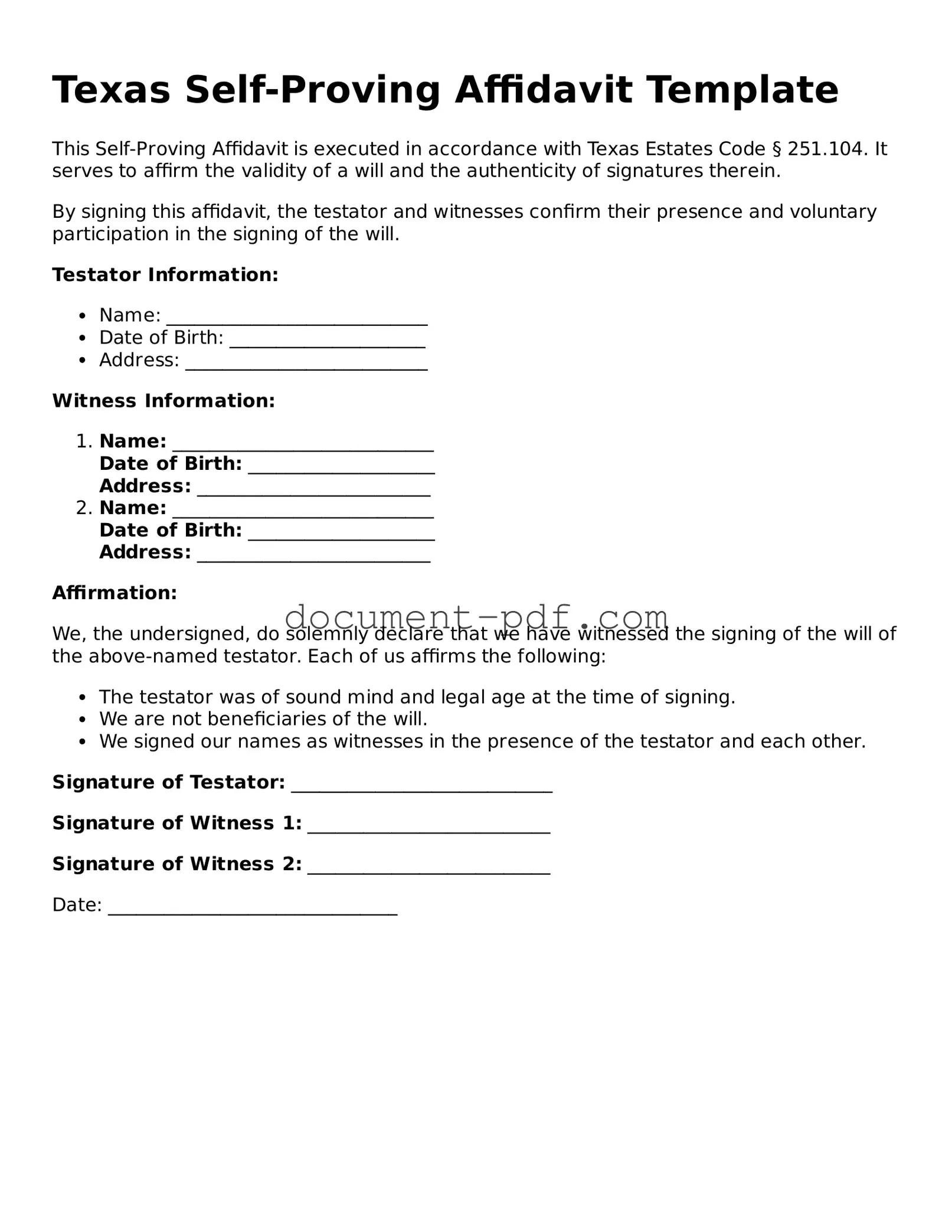Attorney-Verified Texas Self-Proving Affidavit Template
The Texas Self-Proving Affidavit is a legal document that allows a testator's will to be accepted in court without the need for witnesses to testify about its authenticity. This form simplifies the probate process, making it easier for heirs to execute the deceased's wishes. Ready to streamline your estate planning? Fill out the form by clicking the button below.
Access Self-Proving Affidavit Editor Here

Attorney-Verified Texas Self-Proving Affidavit Template
Access Self-Proving Affidavit Editor Here
Finish the form without slowing down
Edit your Self-Proving Affidavit online and download the finished file.
Access Self-Proving Affidavit Editor Here
or
Click for PDF Form
